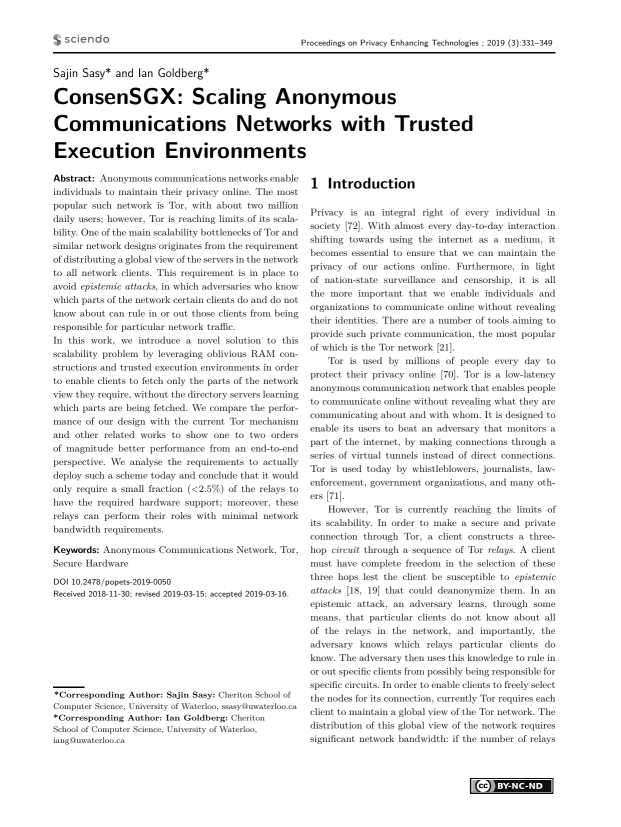ConsenSGX: Scaling Anonymous Communications Networks with Trusted Execution Environments
Authors: Sajin Sasy (Cheriton School of Computer Science, University of Waterloo), Ian Goldberg (Cheriton School of Computer Science, University of Waterloo)
Volume: 2019
Issue: 3
Pages: 331–349
DOI: https://doi.org/10.2478/popets-2019-0050
Abstract: Anonymous communications networks enable individuals to maintain their privacy online. The most popular such network is Tor, with about two million daily users; however, Tor is reaching limits of its scalability. One of the main scalability bottlenecks of Tor and similar network designs originates from the requirement of distributing a global view of the servers in the network to all network clients. This requirement is in place to avoid epistemic attacks, in which adversaries who know which parts of the network certain clients do and do not know about can rule in or out those clients from being responsible for particular network traffic. In this work, we introduce a novel solution to this scalability problem by leveraging oblivious RAM constructions and trusted execution environments in order to enable clients to fetch only the parts of the network view they require, without the directory servers learning which parts are being fetched. We compare the performance of our design with the current Tor mechanism and other related works to show one to two orders of magnitude better performance from an end-to-end perspective. We analyse the requirements to actually deploy such a scheme today and conclude that it would only require a small fraction (<2.5%) of the relays to have the required hardware support; moreover, these relays can perform their roles with minimal network bandwidth requirements.
Keywords: Anonymous Communications Network, Tor, Secure Hardware
Copyright in PoPETs articles are held by their authors. This article is published under a Creative Commons Attribution-NonCommercial-NoDerivs 3.0 license.

